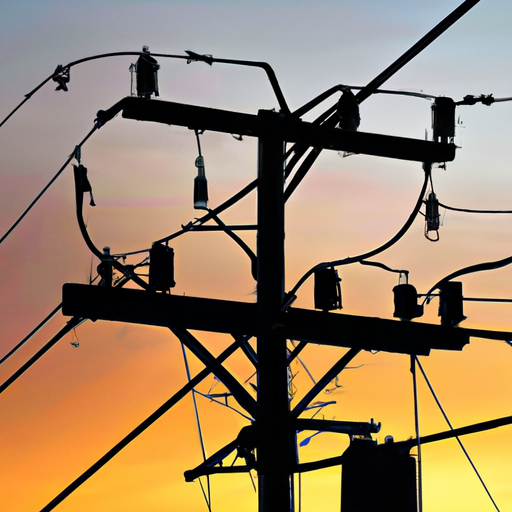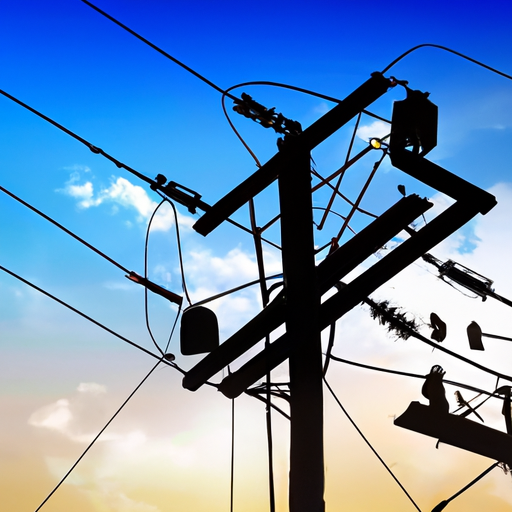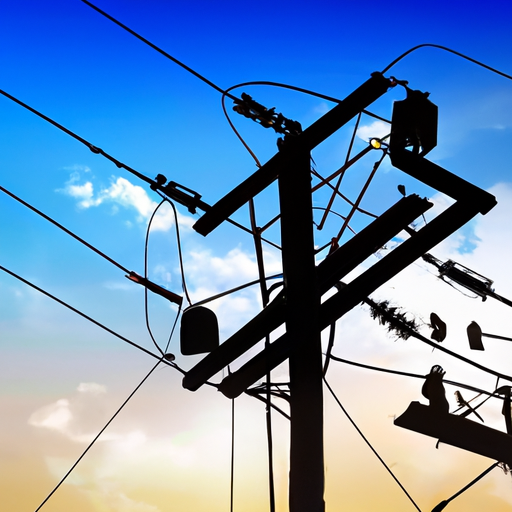So, you’re curious about the difference between lineman and electricians? Well, you’ve come to the right place! In this article, we’re going to explore the distinction between these two professions and help you understand their unique roles in the electrical industry. Whether you’re considering a career in this field or simply want to gain some knowledge, we’ve got you covered.
In the following paragraphs, we’ll break down the responsibilities, training, and qualifications required for both lineman and electricians. By the end of this article, you’ll have a clear understanding of the differences between these two professions and be able to make an informed decision on which path might be right for you. So, let’s delve into this intriguing topic and get ready to expand your knowledge about lineman and electricians! The distinction between a lineman and an electrician may not be immediately clear to everyone. While both professions work with electrical systems and contribute to keeping our lights on and our buildings powered, there are important differences in their roles, responsibilities, training, and job environments. In this article, we will explore the key differences between linemen and electricians, their respective roles and responsibilities, training and education requirements, the tools and equipment they use, job hazards and safety considerations, employment opportunities, salary and benefits, and factors to consider when choosing a career path between the two.
Understanding Linemen
Roles and Responsibilities of Linemen
Linemen are skilled professionals who work with electrical power systems, particularly the overhead and underground transmission and distribution lines that deliver electricity to homes, businesses, and other facilities. Their primary role is to install, maintain, repair, and troubleshoot power lines and related equipment. This includes working on poles, towers, and other structures, climbing heights to access power lines, and ensuring the safe and reliable transmission of electricity.
Linemen also have a crucial role in responding to power outages, storms, and emergencies. They work diligently to restore power and repair any damage to the electrical infrastructure caused by adverse weather conditions or accidents. They must adhere to strict safety standards and procedures to protect themselves and the public while working with high-voltage lines and equipment.
Training and Education for Linemen
Becoming a lineman typically requires completing an apprenticeship program, which combines on-the-job training with classroom instruction. These programs are typically offered by utility companies, trade schools, or community colleges. An apprenticeship can last anywhere from three to five years, during which aspiring linemen learn practical skills, safety practices, and gain a solid understanding of electrical systems.
In addition to the apprenticeship, linemen may also pursue certifications and licenses, such as the Journeyman Lineman License, which demonstrates their competency in the field. Ongoing training is essential for linemen to stay updated on the latest technologies, safety protocols, and industry standards.
Tools and Equipment Used by Linemen
Linemen use a variety of tools and equipment to perform their duties safely and efficiently. These include but are not limited to:
-
Pole climbers and safety belts: Linemen must be skilled at climbing poles using specialized climbers and safety belts, allowing them to access power lines at various heights.
-
Insulated gloves and sleeves: To protect themselves from electrical shock, linemen wear insulated gloves and sleeves made from materials that resist the flow of electricity.
-
Lineman’s pliers and cutters: These specialized tools are designed to cut, twist, and grip wires, helping linemen manipulate electrical components.
-
Voltage testers and multimeters: Linemen use these instruments to measure voltage, current, and resistance in electrical circuits, ensuring that the lines they are working on are safe and de-energized.
-
Bucket trucks and cranes: Linemen often work at heights that require the use of bucket trucks or cranes to access power lines and equipment. These vehicles provide a stable platform for linemen to perform their tasks safely.
Understanding Electricians
Roles and Responsibilities of Electricians
Electricians, on the other hand, focus more broadly on the installation, maintenance, and repair of electrical systems in various settings, including residential, commercial, and industrial buildings. Their responsibilities include wiring buildings, installing electrical fixtures and appliances, troubleshooting electrical issues, and ensuring compliance with electrical codes and regulations. Electricians also work on electrical panels, transformers, and circuit breakers, ensuring the proper functioning and safety of these components.
Electricians must possess strong problem-solving skills and have a thorough understanding of electrical blueprints and diagrams. They work closely with architects, engineers, and other professionals to ensure that electrical systems are installed correctly and safely.
Training and Education for Electricians
Like linemen, electricians typically begin their careers by completing an apprenticeship program. These programs provide a combination of on-the-job training and classroom instruction, usually lasting four to five years. Apprentices learn various electrical concepts, including electrical theory, wiring methods, and safety practices.
Upon completing their apprenticeships, electricians may obtain a journeyman electrician license, which confirms their proficiency in the field. Some electricians may choose to specialize in specific areas, such as residential, commercial, or industrial electrical work, by pursuing additional training or certifications.
Tools and Equipment Used by Electricians
Electricians rely on a range of tools and equipment to perform their work effectively. Some commonly used tools include:
-
Wire strippers and cutters: Electricians use these tools to strip and cut electrical wires, preparing them for installation or repair.
-
Screwdrivers and pliers: These basic tools are essential for various electrical tasks, such as tightening screws, bending wires, and gripping small components.
-
Voltage testers and circuit analyzers: Electricians use these devices to check for the presence of voltage and diagnose electrical issues, ensuring the safety of the circuits they are working on.
-
Conduit benders and pipe threaders: These tools are utilized when installing conduits and pipes to encase and protect electrical wiring.
-
Power drills and saws: Electricians use power tools to cut holes for electrical outlets, switches, and other fixtures, as well as to drill through walls and other materials.

Key Differences Between Linemen and Electricians
Now that we have provided an overview of the roles and responsibilities, training and education, and tools and equipment used by linemen and electricians, let’s delve into the key differences between these two professions.
Primary Focus of Linemen
Linemen primarily focus on the transmission and distribution of electrical power. They manage the systems that carry electricity from power plants to substations and then to the end-users. Their work often involves high-voltage lines and dealing with the challenges of working outdoors in all weather conditions. Linemen are crucial to maintaining a reliable electrical infrastructure and ensuring the uninterrupted flow of power to homes and businesses.
Primary Focus of Electricians
Electricians, on the other hand, concentrate more on the installation, maintenance, and repair of electrical systems within buildings and structures. Their work primarily involves low-voltage systems, such as residential and commercial wiring. Electricians play a vital role in providing safe and efficient electrical services to homes, businesses, and industries, ensuring that electrical systems are up to code and meet the needs of their clients.
Work Environments for Linemen
Linemen typically work outdoors and often in challenging conditions. They may need to climb poles, towers, or structures to access power lines, which requires physical strength, agility, and comfort working at heights. Linemen must be prepared to work in extreme weather conditions, including storms and hurricanes, to restore power and repair any damage to the electrical infrastructure.
Work Environments for Electricians
Electricians work in a variety of environments, including residential, commercial, and industrial settings. Their work may involve installing electrical systems in new construction projects, maintaining electrical equipment in existing buildings, or troubleshooting and repairing electrical issues. Electricians may work indoors, outdoors, or in confined spaces, depending on the specific job requirements.
Job Hazards and Safety Considerations for Linemen
Working with high-voltage power lines exposes linemen to significant hazards, including electrical shocks, falls, and burns. To mitigate these risks, linemen must adhere to strict safety protocols, wear appropriate personal protective equipment (PPE), and receive specialized training in electrical safety. They must also stay alert and vigilant to potential hazards while working at heights or in adverse weather conditions.
Job Hazards and Safety Considerations for Electricians
While electricians may also face electrical hazards, their work environments generally involve lower voltages compared to linemen. Electricians must still take precautions to avoid electrical shocks, burns, and injuries. This includes de-energizing circuits before working on them, using proper grounding techniques, and following safety procedures to minimize the risk of accidents.
Employment Opportunities and Job Outlook
Career Opportunities for Linemen
Linemen are in demand in the utility and telecommunications industries, as well as in construction and maintenance sectors. Opportunities for linemen can be found with utility companies, contract companies, and government agencies. With the increasing demand for electricity and the need to upgrade aging infrastructure, the job outlook for linemen remains favorable.
Career Opportunities for Electricians
Electricians have a wide range of career opportunities across different sectors. They can work for electrical contractors, construction companies, manufacturing facilities, or become self-employed. As new technologies and renewable energy sources are adopted, the need for electricians with expertise in these areas is expected to grow. Additionally, electricians have the option to specialize in specific fields, such as residential, commercial, or industrial electrical work, providing them with diverse career prospects.
Salary and Benefits for Linemen
Linemen typically enjoy competitive salaries and benefits. According to the Bureau of Labor Statistics (BLS) in the United States, the median annual wage for electrical power-line installers and repairers, which includes linemen, was $73,380 as of May 2020. Benefits for linemen may include health insurance, retirement plans, paid time off, and opportunities for career advancement.
Salary and Benefits for Electricians
Electricians also receive competitive salaries and benefits. According to the BLS, the median annual wage for electricians was $56,900 as of May 2020. However, salaries can vary depending on factors such as experience, location, and specialization. Electricians may also receive benefits such as health insurance, retirement plans, and opportunities for professional development.

Choosing a Career Path
Factors to Consider when Choosing Between Lineman and Electrician Careers
When deciding between a career as a lineman or an electrician, there are several factors to consider. These include your personal skills and interests, long-term growth and advancement opportunities, job satisfaction and work-life balance, and the specific demands and requirements of each profession.
Job Satisfaction and Work-Life Balance
Linemen often work long hours and may be called upon to respond to emergencies or restore power during storms and outages. The physical demands of working at heights and in adverse weather conditions should also be taken into account. Electricians, on the other hand, may have more flexible work hours, depending on the type of work they specialize in and the employer they work for. It is important to assess your preferences for work-life balance and job satisfaction when considering a career path.
Personal Skills and Interests
Both lineman and electrician careers require technical skills and a strong understanding of electrical systems. Linemen need to be comfortable with climbing and working at heights, while electricians should possess strong problem-solving and troubleshooting skills. Consider your personal strengths, interests, and aptitudes when deciding which career path aligns best with your skill set.
Long-Term Growth and Advancement
Both professions offer opportunities for long-term growth and advancement. Linemen can progress from apprentice to journeyman, and eventually to supervisory or management roles. Electricians also have the potential to advance their careers by gaining further experience, obtaining additional certifications, or specializing in specific areas of electrical work. Consider the potential for professional development and advancement when making your career decision.
Conclusion
In summary, linemen and electricians are both integral to the electrical industry, but they have distinct roles, responsibilities, training, and job environments. Linemen focus on the transmission and distribution of electrical power, working with high-voltage lines and often in challenging outdoor conditions. Electricians, on the other hand, specialize in the installation, maintenance, and repair of electrical systems within buildings, working with lower-voltage systems in a variety of environments. When choosing a career path between lineman and electrician, consider factors such as job satisfaction, work-life balance, personal skills and interests, and long-term growth opportunities. By carefully assessing these factors, you can make an informed decision and embark on a fulfilling career in the electrical industry that suits your goals and aspirations.




